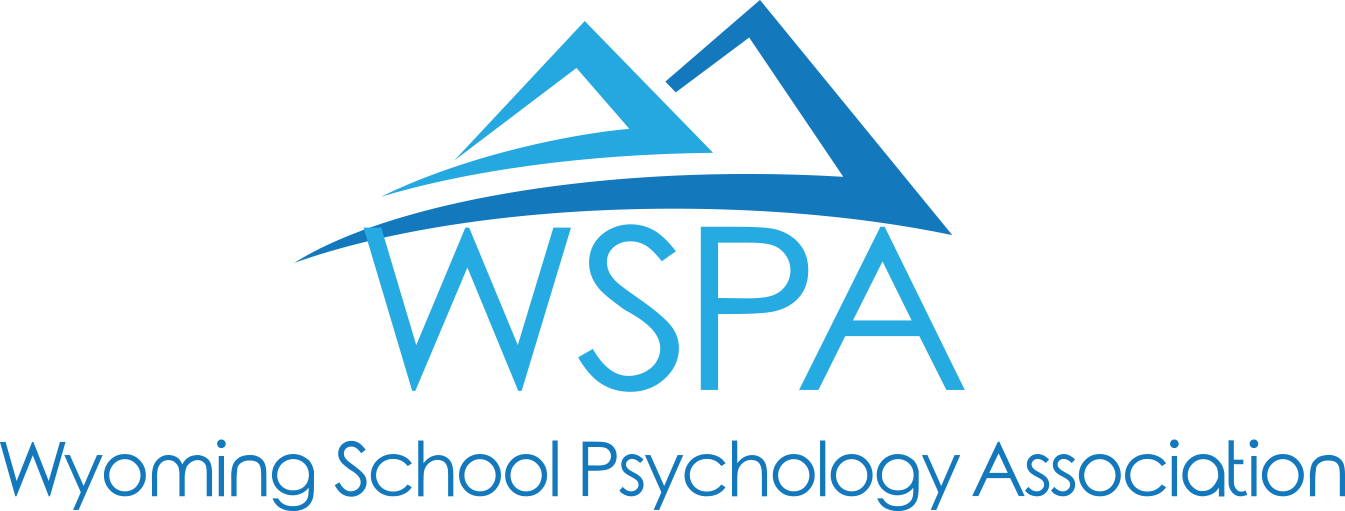***Post written by Annastashia Teepe, Southeast Representative for WSPA***
According to the research summary released by the National Association of School Psychologists on improving school outcomes in 2015, there are five guiding principles that drive educational policy:
- Comprehensive curricula and individualized instruction.
- Enough student support services to address barriers to learning for all students provided through a continuum of care that includes families in decision making.
- Comprehensive accountability and progress monitoring measures to document progress or drive changes if progress does not occur.
- Professional development and supports for teachers and other educators necessary to align education practices with research and best practice methods.
- Federal leadership and school-based research to promote effective services that support the whole child in the educational setting.
School psychologists play a valuable role in advocating for best practice, ensuring student services are aligned with known best practice, voicing need for system level change and providing research based best practice directly to students (National Association of School Psychologist, 2015). Specifically, the National Association of School Psychologists has sought to address the shortage of school psychologists seen nationally as one of the main components of addressing mental health needs for all students and specifically those students with identified disabilities (NASP, 2019). NASP is encouraging Congress and state agencies to recognize national certification as a systematic approach to increase reciprocity between state credentialing agencies to increase access to school psychologists (NASP, 2019). The association is also emphasizing through policy promotion the capacity and training of school psychologists by “restrict, minimize, or limit alternate or emergency credentialing that allows related professionals to supplant school psychologists when providing school psychological services,” (NASP, 2019). Wyoming Department of Education currently released the 2019 Special Education Staff Guidelines that is outlined by the following philosophy:
There are several principles informing this approach:
- There must be compliance with federal and state special education rules, regulations, and policies, including maintaining a continuum of services and serving students in the least restrictive environment appropriate for their needs;
- The services and supports described in a student’s IEP are carefully determined with the intent of producing appropriate growth and progress and are crucial in determining reasonable caseloads;
- There must be flexibility evidenced in the provision of local decision making to allow for changes in student needs, unexpected situations which occasionally arise during a school year, and cost effectiveness;
- Differences in opinion regarding caseloads should be resolved locally and at the level closest to the situation whenever and wherever possible.
The guidelines proposed by the Wyoming Department of Education do not yet outline best practices regarding school psychology staff member to student ratios proposed by NASP. As the Wyoming school psychologists move forward in offering high quality school psychology services, we need to work to advocate for the profession of school psychology within Wyoming, advocate for adequate mental health services and continue to advocate for our profession within the state as we continue to face a shortage of mental health services within schools across the nation.
References
National Association of School Psychologists. (2019). Federal Public Policy and Legislative Platform for the 116th Congress (2019–2021) [Policy platform]. Bethesda, MD: Author.
National Association of School Psychologists. (2015). School psychologists: Improving student and school outcomes [Research summary]. Bethesda, MD: Author.
Wyoming Department of Education. (2019). Special Education Staffing Guidelines. [Executive Summary]. Cheyenne, WY: Author.

Recent Comments